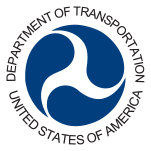Correspondence
Letter to Ranking Member Capuano on Enhancing Implementation and Oversight of DOT’s Pipeline Safety Program
Summary
We issued a letter to Ranking Member Michael E. Capuano with our input on ways to enhance implementation and oversight of the U.S. Department of Transportation’s (DOT) pipeline safety program. Specifically, Ranking Member Capuano requested that we provide an overview of any challenges or impediments our office has experienced to successful prosecution of criminal pipeline safety violations, as defined in Title 49 U.S. Code (U.S.C.) Section 60123, and any recommendations for addressing these challenges or impediments. A significant obstacle to bringing more successful prosecutions is the language of section 60123(a) itself, which requires that the violation be committed “knowingly and willfully.” A requirement of willfulness is fairly unusual in criminal statues, and we have had far more success prosecuting cases under Title 49 U.S.C. Section 5124, which also penalizes reckless violations. We believe that section 60123(a) should be amended by changing “knowingly and willfully” to “recklessly” to mirror section 5124. Another obstacle to successful prosecution of criminal pipeline safety violations is that the employees of pipeline operators and other persons with knowledge of violations rarely come forward. We believe that a whistleblower incentive provision, such as the one recently enacted by the Fixing America’s Surface Transportation Act, would greatly enhance DOT’s ability to identify safety violations and take appropriate action before a pipeline rupture or explosion occurs.
